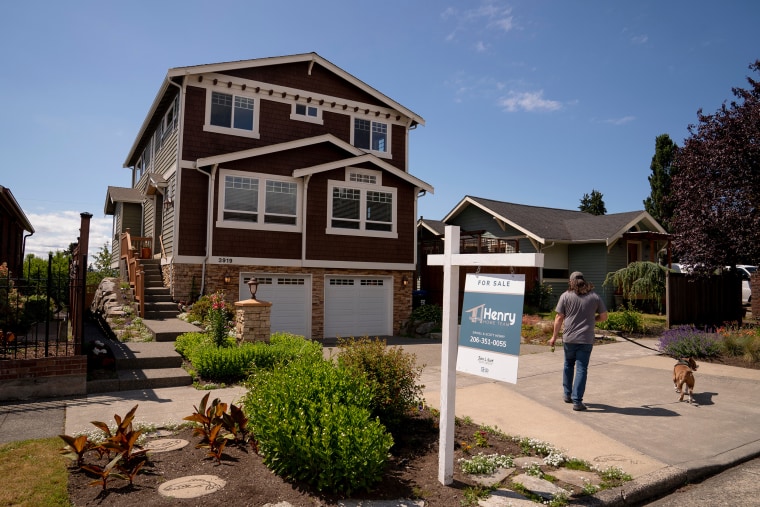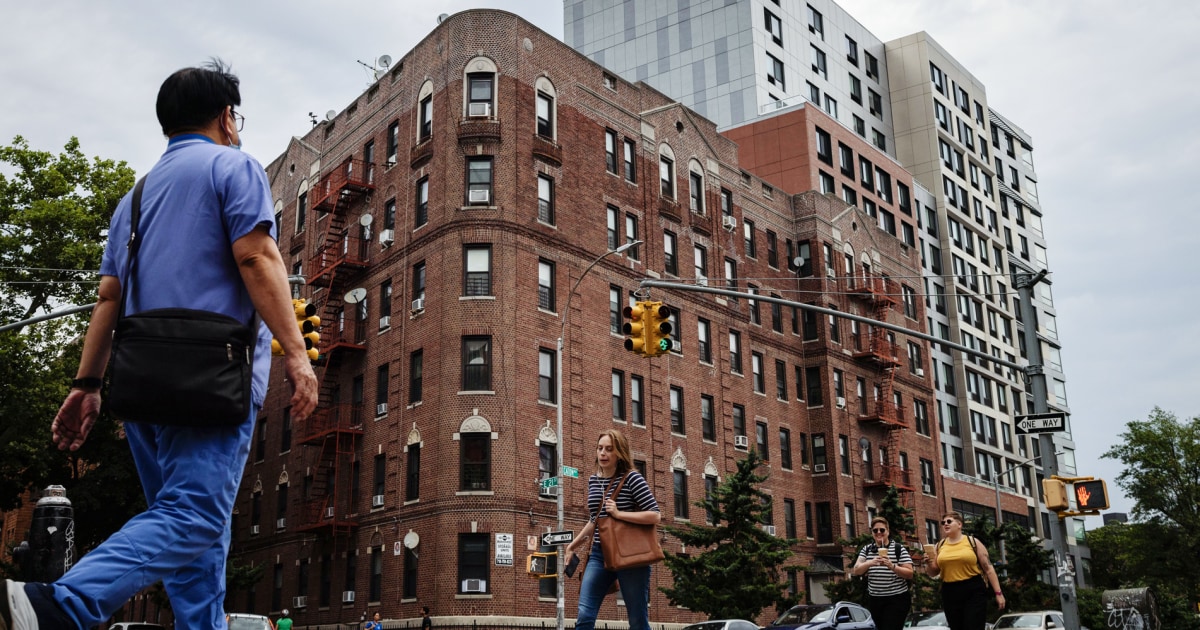Trump, for his part, has said that sweeping crackdowns on both legal and unauthorized immigration — including detaining and deporting millions of people — would free up housing supply for U.S. citizens, lowering prices. But some economists question that conclusion, largely because of the impact on new supply: Slashing the construction industry’s large foreign-born workforce could constrain homebuilding.
“It’s generally considered that the net effect of immigration restrictions is to put upward pressure on housing costs,” said Scott Lincicome, vice president of general economics at the libertarian-leaning Cato Institute. In addition, some analysts say Trump’s calls for steeper tariffs could drive up the costs of many construction materials, discouraging development.
A Trump campaign spokesperson didn’t directly address these criticisms but said the former president “will rein in federal spending, stop the unsustainable invasion of illegal aliens which is driving up housing costs, cut taxes for American families, eliminate costly regulations, and free up appropriate portions of federal land for housing.”
Prior to 2020, when presidential candidates talked about housing at all, it was always about middle-class home ownership.
Diane Yentel, president and CEO of the National Low Income Housing Coalition
Both parties support opening more federally owned land to development, among other ideas to boost supply. On Friday, Harris proposed a new tax break to builders of “starter homes,” expanded tax incentives for constructing affordable rentals and a $40 billion fund “to spur innovative housing construction.”
Jim Tobin, CEO of the National Association of Home Builders, an industry group, said he welcomes tax incentives to jump-start development but said too many hurdles remain.
“This administration has spoken out of both sides of its mouth,” he said. “While they talk about more supply, they put more roadblocks in the way of creating more supply.”
He cited federal agencies’ adoption of energy efficiency standards this year for new housing backed by government financing. The NAHB’s Kansas City chapter said that move would raise metro area prices by more than $31,000 per home while saving only $657 in annual energy costs. Instead, Tobin said the government should ease regulations and leverage federal dollars to encourage zoning reforms.
“In many places it’s too difficult to build, and it’s driving prices up,” Harris acknowledged in North Carolina on Friday. “We will take down barriers and cut red tape, including at the state and local levels,” she said.
The White House has already tried to influence zoning, including through a grant program to municipal governments looking to tweak zoning laws to accommodate more affordable housing. While Zhao agreed funding is “the main pressure” federal policymakers can apply to seek such reforms, she said the administration’s housing efforts so far represent “a lot of nibbling around the edges.”

A Harris campaign spokesperson said she would “continue the fight for affordable housing for all Americans as president, and she’s the perfect candidate to make America’s most notoriously greedy landlord, Donald Trump, a loser again this November.”
A Republican administration, by comparison, might not push for zoning changes.
Trump has vowed to protect single-family zoning to fend off developers and policymakers looking to lower prices by increasing housing density. During his 2020 re-election bid, he accused proponents of threatening to destroy the suburbs by injecting them with low-income residents and “criminals.”
Some housing economists warn against this stance. “If the federal government were going to try to actively protect single-family zoning at the state and local level, it would be bad for housing affordability in those places,” Lincicome said.
Trump has historically flip-flopped on zoning. During his term in office, Housing and Urban Development Secretary Ben Carson criticized single-family zoning and praised cities that made it easier to build multifamily units. But in the housing chapter Carson wrote for Project 2025 — a policy playbook Trump has disavowed despite long-standing ties with its authors — the former secretary said, “A conservative Administration should oppose any efforts to weaken single-family zoning.”
While Trump recently told Bloomberg he’d ease environmental and permitting rules to lower costs, he promised at a rally this month: “There will be no low-income housing developments in areas that are right next to your house.”

